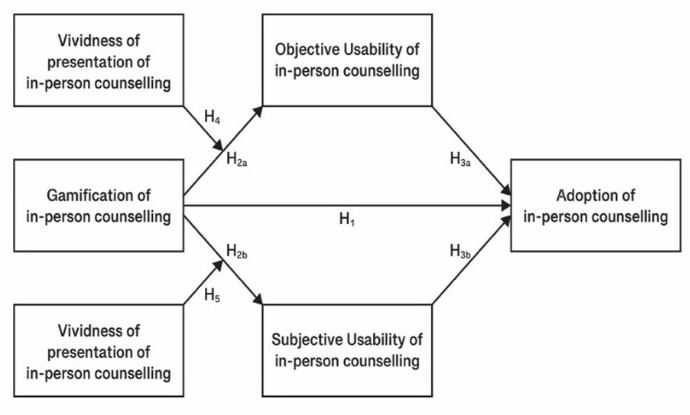Piao, S., & Joo, J. (2022). A Behavioral Strategy to Nudge Young Adults to Adopt In‐Person Counseling: Gamification. In G. Bruyns & H. Wei (Eds.), [ _ ] With Design: Reinventing Design Modes (pp. 1348–1363). Singapore: Springer.
Abstract
Mental illness has always been an important issue for young adults. Moreover, initiatives resulting from the outbreak of COVID‐19 have had an even greater impact on the mental health of young adults. This study sought to examine the effect of gamification on whether young adults adopt in‐person counseling. One hundred twenty young adults (42 males and 78 females) with an average age of 29 years participated in our experiment. In the experiment, a 2 (Gamification: no vs. yes) × 2 (Vividness: low vs. high) between‐subjects design was employed. In the “yes” gamification condition, participants decided whether or not to read introductory material about in‐person counseling, and also whether or not to adopt in‐person counseling in the future. The results of the study show that: (1) gamification increased adoption, (2) participants’ perception of subjective usability of in‐person counseling mediated the effect of gamification to adoption, and (3) vividness of presentation moderated subjective usability. Our study demonstrated that gamification nudges young adults to adopt in‐person counseling while subjective usability mediates the relationship, and vividness moderates the relationship between gamification and subjective usability. Our findings provide counselors fresh insights into motivating people to access counseling services.
Keywords
Gamification, Adoption, Usability, Vividness, Counselling
“… gamification has the primary purpose of promoting human motivation and performance in a particular activity. The importance of gamification has been thoroughly discussed theoretically and practically in an increasing number of research studies for health professions education (Van Nuland et al. 2015; Verkuyl et al. 2017;Buttetal. 2018). Ourexperimental study found that gamification does have a positive effect on people adopting in-person counselling” (pg. 1360).

